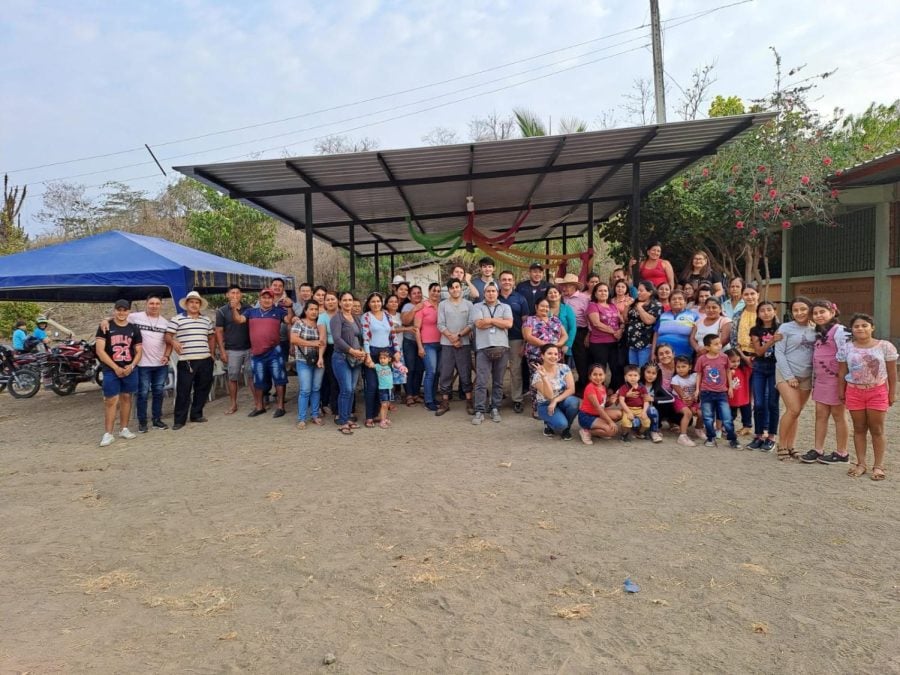Engineers Without Borders NU works to aid freshwater accessibility in Ecuador community
Photo courtesy of Ryan Moorhead
Members of EWB-NU traveled to Paja Colorada over Winter Break for an assessment trip. The project’s pipeline, once constructed, will serve 51 families in Manabí, Ecuador.
April 3, 2023
Two Northwestern undergraduates traveled to Ecuador over Winter Break as part of Engineers Without Borders NU’s ongoing project to bring clean water to the Paja Colorada community.
Paja Colorada, in the province of Manabí, currently lacks the infrastructure to pump water directly into community members’ homes, said trip attendee and Weinberg sophomore Ryan Moorhead. He added that the community is also in a remote, relatively dry area of Ecuador and lacks access to clean freshwater from natural sources.
As a result, the community has to rely on costly water tanks brought by truck — which are unreliable and dangerous to access when roads are washed out during the rainy season, Moorhead said.
EWB-NU plans to connect Paja Colorada to a large regional water infrastructure project, which will run alongside the main highway in Manabí, said McCormick senior Kevin Brunner, outgoing vice president of the technical team.
“We want to build a storage tank for water (from the main pipeline) and then ultimately also create household (and) metered water connections to each of these community households,” Brunner said.
Moorhead, EWB’s incoming president, traveled with technical team member and McCormick freshman Joshua Hershey for an in-person assessment trip in December. Moorhead said talking directly with affected community members intensified EWB-NU’s drive to move forward with the project.
When the team arrived, the community greeted it with a welcome ceremony laden with fresh fruit and traditional dances from the region, Moorhead said. He added it was “really touching” to see their hospitality and hear about the organization’s impact.
“It was motivating for us to interact with the people we were working with, and I think it was motivating for the community to see the people (working to help bring water infrastructure) that they had heard about,” Moorhead said.
Maurice Tobon, a professional engineer and mentor assigned by EWB, accompanied Moorhead and Hershey and led them around the community.
“You learn a lot more one day in a community than what you would doing a month of research online. It’s just not the same,” Tobon said. “You need to go there and talk to the people and see what’s going on to understand it. Now we have a good understanding of what we need to do.”
EWB-NU works with nongovernmental organization Engineers in Action and the international EWB to facilitate the project. Although EWB-NU has three teams, only its technical team works on engineering projects abroad, Brunner said.
Brunner has been with the project since its early stages, joining in 2019. Progress slowed during the COVID-19 pandemic, but the EIA team completed a remote assessment in July 2021.
“It’s great to see that (the project) is moving along,” Brunner said. “Up until the assessment trip in December, we had never actually made face-to-face contact with anyone in the community. We now have a very firm set plan of how exactly we’re going to create this water distribution system for our community.”
Tobon, who has been a mentor with EWB for the past nine years and has done water and wastewater engineering for more than 30 years, said the multi-phase nature of such projects means unforeseen circumstances can cause time lapses between assessment and implementation.
He said the last thing these communities need is for a well-intentioned organization to meet with the community for an assessment trip, but then disappear.
“A couple (community members) came up to me and said, ‘Please don’t forget about us. We’ve never had a stable water supply in this community. It’s been 60 years since this community’s been here and we really need your help,’” Tobon said. “From a personal perspective, that was really good to hear. And it just brings myself and the students back with a lot of goals that are very clear and defined.”
Moorhead described a day in the community as traveling to a pumping station, then tracing the water from its source — an open, unsanitary pond area susceptible to runoff and animal contamination — through a filtration system, and then to residents’ homes.
They also interviewed residents about water usage and quality, and asked if they’d gotten sick recently from contaminated water.
“It was important for us to go to engage the community and let them know that we, as the Northwestern University Student Chapter, are here,” Tobon said. “We’re committed to the community to serve them water.”
Email: noracollins2025@u.northwestern.edu
Twitter: @noracollins02
Related Stories:
— Study led by Northwestern professor quantifies experiences with global water insecurity
— Engineering seniors work to improve the healthcare system while studying abroad in South Africa



